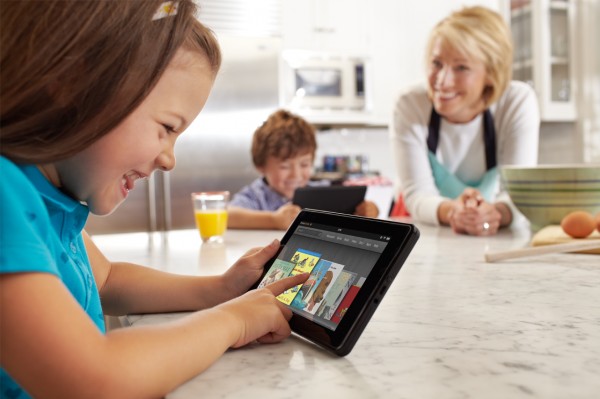
Amazon sells 'well over' 4 million Kindles in December
Leading online retailer Amazon.com has never been forthcoming with exact sales figures for its Kindle e-reader platform. Instead, the company uses ambiguities like "the current generation Kindle is selling twice as many units as the previous generation," or that the current generation is the fastest-selling model yet.
For the first time, Amazon has given a more concrete idea about how many Kindles are selling. In a roundup of its 2011 holiday season sales, the company said it was selling "well over" one million Kindle devices per week in the month of December, and that the best-selling, most gifted, and most wish-listed product across all of Amazon's product listings is the low-cost Kindle Fire tablet.

Hey, Santa, which tech execs were naughty or nice this year?
Christmastime is coming soon, Santa's on his way. As jolly old St. Nick makes his rounds of Silicon Valley this weekend, which tech CEOs will be on his "Naughty" and "Nice" lists this year? We here at BetaNews are secret elves, and we'd like to help out the man in red by giving our opinion on who should get what they asked for, and who needs a big lump of coal.
Some of our picks are pretty obvious, while others may surprise you. Our list is intended to make you think and to spur some discussion on the trends in tech during 2011. Either way, we want to hear from you on who you think deserves to be on this list. We'll follow up Friday with your responses.
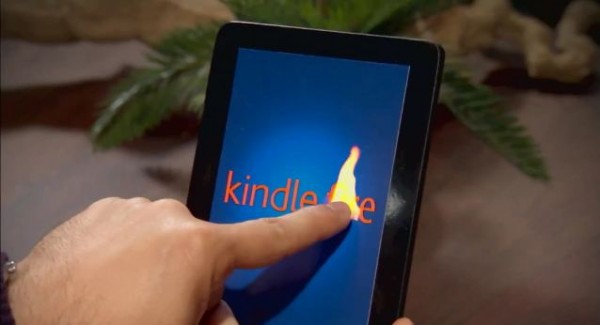
Amazon apologies for Kindle Fire (comedic video)
If you ever wondered what tablet comedian Conan O'Brien uses, perhaps this video about Amazon Kindle Fire will tell you. One commenter to the comedic segment asked: "I wonder how much Apple paid TBS for this one?" I wouldn't go that far.
You will laugh. Surely iPad fans will chuckle most.

Amazon will pay you $15 to shop the mall, then buy online
Amazon wants you to shop on its website this Saturday. How much so? It is enticing users of Amazon Price Check with up to $15 savings on items they scan in stores and end up buying through the retailer. Users can earn up to a $5 discount per purchase (five percent) on electronics, toys, sports, music and DVDs.
The company is using those scanning to effectively spy on brick-and-mortar retailers for them by enabling a share price function in the app. Amazon says it will use this data to keep its prices competitive. To earn the discount, customers would need to use the checkout function within Price Check.

Amazon's cloud extinguishes Kindle Fire?
A number of Kindle Fire users are reporting Internet connectivity issues that are preventing them from browsing the web, according to posts to Amazon's community forums. Devices connect to WiFi but not to the Internet, or speed drops dramatically.
The trouble was widely reported today and attributed to WiFi. However, based on a cursory technical review and thorough exploration of forum posts, BetaNews sees a likely different cause: Some kind of breakdown between Amazon's Silk browser, Amazon's supporting web services and local ISP connection -- relating to server caching, we suspect.

Amazon loses about $3 on each Kindle Fire
Amazon is leaning on its strengths in procurement in order to make the Kindle Fire as cheaply as possible, IHS iSuppli says. The firm has begun its teardown of the device and says that the components inside offer little surprises from the virtual teardown it released in September. Each Fire costs Amazon $201.70 to build, meaning the company loses $2.70 on each device.
Previously, IHS guessed that the Fire had cost $209.63 to build, but that was based on what it new of Amazon's suppliers and not an actual teardown of the device.

Cloud Turtle now supports Amazon S3, Nirvanix
Online storage services can be a great way to share documents or back up key files. Of course they all have their own interfaces and clients, though, so if you use more than one then you’ll have plenty of software to install and master.
But maybe it doesn’t have to be that way. Cloud Turtle (from Genie9, the company behind the Genie Timeline backup package) doesn’t only work with Genie9′s own Timeline Cloud service, where it enables you to search your backed up files, restore any you need, stream music and videos, and more. It also delivers equally strong functionality with both Amazon S3 and Nirvanix accounts.
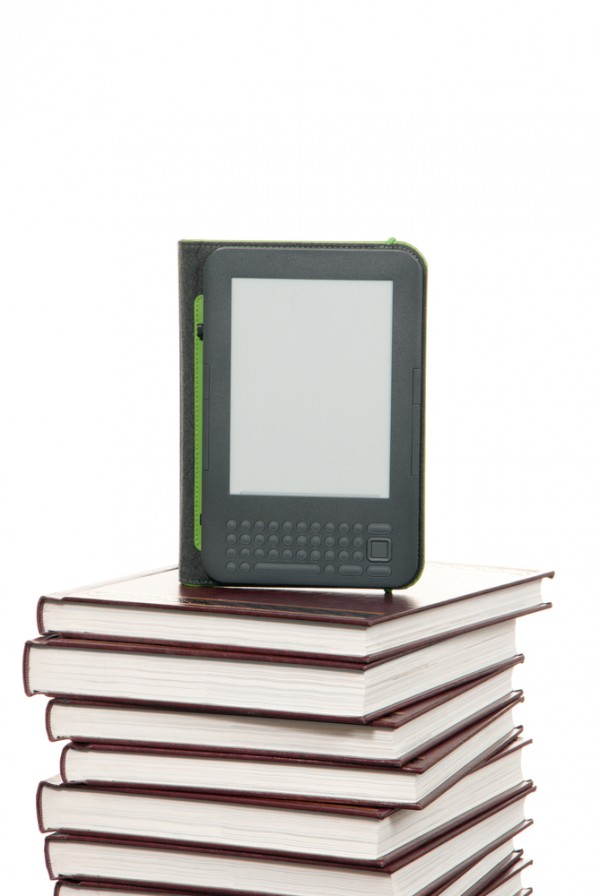
Amazon sweetens Prime with Kindle book lending
Is Amazon Prime the best deal in tech? It just may be: Amazon now offers the capability for customers to loan out over 5,000 books for their Kindle or Kindle Fire devices. The Kindle Owners' Lending Library will allow for one book per month to be lent out, and there are no due dates.
To borrow a new book, the Kindle user "returns" the title on their device by lending out a new book: the older book will disappear.

Amazon had to build 'millions more' Kindle Fire units than originally planned
Leading online retailer Amazon submitted its third quarter 2011 sales and earnings figures on Tuesday, revealing a big jump in sales -- especially in its Kindle product line -- but an overall decline in income.
Sales increased 44 percent sequentially, going from $7.56 billion to $10.88 billion; this represented a 39 percent increase over the same quarter last year.
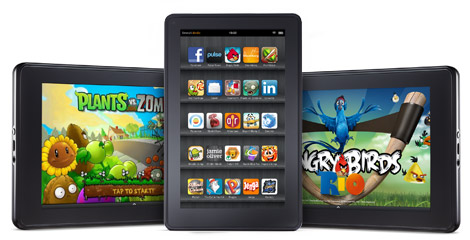
Will you buy Amazon Kindle Fire?
The hottest tablet to debut in months has pretty puny specs. There's no camera, no Bluetooth, no sensors for orientation and no 3G radio. The device runs Android 2.1, but it's customized such your existing apps probably won't run -- and Amazon has developed its own web browser, too. But the $199 price is compelling, and seemingly everyone is talking about it. So I have to ask: Has Kindle Fire set your wallet ablaze? Amazon is taking preorders for November 15 release. As usual you can answer in comments or email joe at betanews dot com. Then there is the poll below; please take it.
I must admit to having a hearty laugh at the news coverage. For weeks, as Amazon tablet rumors mounted, bloggers and journalists posted story after story asserting that the iPad killer was coming -- like some new-found messiah they worshiped sight unseen who would vanquish the Jesus Pad from Apple cultdom. Over the last two days, many of those same sites posted about how "Kindle Fire is no iPad killer". I laughed my ass off. Seriously, there really needs to be some kind rumor-control meter for the Internet.

Amazon lights up Kindle Fire advertising
Amazon's new Kindle Fire tablet may be nearly two months from shipping, but that's not stopping the retailer from building buzz now. Amazon only just announced the Android 2.1-based tablet this morning, and the first commercials are ready to go. The 7-inch Kindle Fire goes on sale November 15 for $199. Wanna guess what the hot Christmas gift this year is gonna be? Hint: It ain't iPad 2.
While geeks, tech writers and Apple fanatics will get all hung up on what's missing -- no camera, no Bluetooth, no 3G, no Android 3.x "Honeycomb" -- ignore their complaints. Amazon isn't selling techie features but a digital lifestyle -- that's crystal clear from this one video, and it resonates with marketing for Kindle ebook readers.
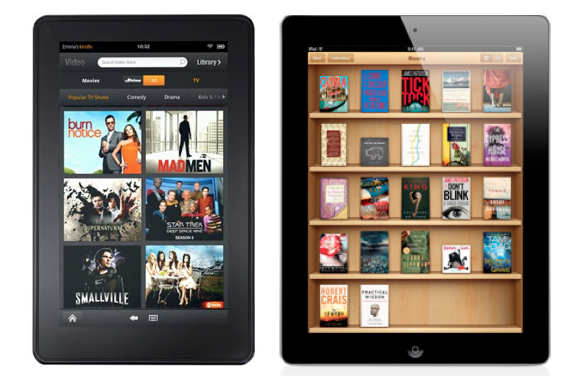
How does Amazon Kindle Fire compare to iPad 2? [chart]
Amazon's unveiling of the Kindle Fire on Wednesday took the eReader ever closer to becoming a full-fledged tablet device. With the move, Amazon will now have its devices ever-more increasingly compared to tablets rather than other e-readers in its class.
The most obvious comparison is price. At $199, Amazon is clearly aiming to get as many Fires in the hands of consumers as possible. It could see the device as a loss leader, hoping to make up any lost margins on the sales of content from its music and entertainment services.
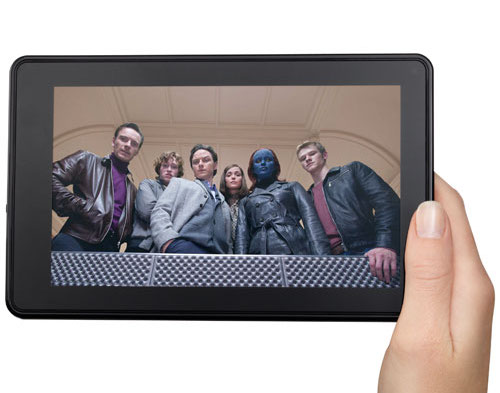
The three big ways Amazon's Kindle Fire wins
Online retailer Amazon on Wednesday officially launched its first Android tablet, the 7" Kindle Fire.
Taking its name from the company's already successful line of e-readers, the Kindle Fire introduces a handful of new features to the Android tablet business.
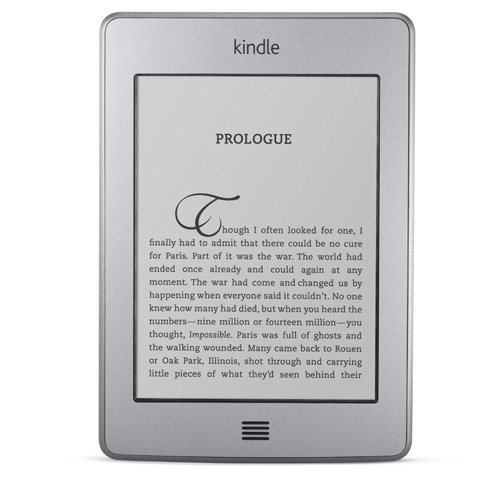
Amazon unveils three all-new Kindle e-readers
Amazon on Wednesday unveiled the fifth generation of its dedicated Kindle e-readers: the $79 Kindle, the $99 Kindle Touch, and the $149 Kindle Touch 3G. All three go up for pre-order today and will begin shipping on November 21.
The three models each offer the latest high-contrast 6" E Ink Pearl display and an even smaller profile than previous versions, but they're not all the same. The low-end Kindle offers a much smaller chassis, and weighs only 5.95 ounces, while two flagship models, Kindle Touch, and Touch 3G, have infrared touchscreen interfaces like the Nook Simple Touch and Sony Reader and slightly larger bodies.

Streaming is big business: Amazon signs Fox, Netflix signs Dreamworks
Monday, Amazon and Netflix, two major competitors in the video streaming space announced new content partnerships that broaden their catalogs and represent the next generation of carriage agreements that occur every three years in the cable and pay TV business.
Amazon announced it had signed a licensing deal with 20th Century Fox that would bring streaming movies and TV shows to its Amazon Prime Instant streaming service. It will join CBS, NBCUniversal, Sony, Warner Brothers, and Amazon's other current partners, who now bring a total of 11,000 movies and TV shows to the premium service.
